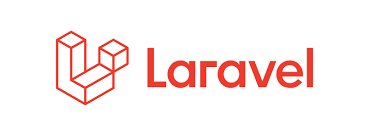Advantages and Disadvantages of Laravel as a Web Framework
Laravel has emerged as a prominent web framework, renowned for its robust features and developer-friendly environment. As developers weigh their options for web development, understanding the advantages and disadvantages of Laravel is crucial to discerning its appeal and assessing its suitability for various projects. Let's delve into the key facets of Laravel's strengths and limitations, deciphering why it remains a popular choice among frameworks in the ever-evolving world of web development.
Advantages of Laravel
1. Elegant Syntax and Structure
Laravel's elegant and expressive syntax simplifies the coding process, enabling developers to create clean and readable code that is both efficient and maintainable.
2. Comprehensive Documentation
The framework's extensive and comprehensive documentation serves as a valuable resource, aiding developers in navigating the various components of Laravel and accelerating the development process.
3. Built-in Tools and Libraries
Laravel offers a rich set of built-in tools and libraries that streamline common tasks, such as authentication, caching, routing, and sessions, significantly reducing development time and effort.
4. Powerful ORM and Database Migration System
With Laravel's Eloquent ORM and robust database migration system, developers can efficiently manage database operations, simplifying data manipulation and enhancing application performance.
5. Blade Templating Engine
The intuitive Blade templating engine simplifies the process of designing dynamic and engaging front-end interfaces, allowing developers to create visually appealing web pages with minimal effort.
Disadvantages of Laravel
1. Learning Curve for Beginners
Laravel's extensive features and capabilities can pose a steep learning curve for beginners, requiring dedicated time and effort to grasp the framework's intricacies and best practices fully.
2. Performance Overhead
In some complex applications, Laravel's comprehensive features may lead to a slight performance overhead compared to minimalist frameworks, necessitating careful optimization for resource-intensive projects.
3. Limited Flexibility in Complex Customizations
While Laravel offers a diverse range of functionalities, intricate customizations and specific project requirements may sometimes necessitate workarounds or compromises within the framework's predefined structures.
Why Laravel Remains Popular Among Frameworks
Laravel's popularity among frameworks can be attributed to its blend of powerful features, user-friendly syntax, and active community support. Its emphasis on developer productivity, coupled with its elegant design and comprehensive documentation, has positioned it as a go-to choice for developers seeking a balance between efficiency, functionality, and scalability. With its robust ecosystem of tools and libraries, Laravel continues to empower developers in building sophisticated and dynamic web applications, cementing its place as one of the leading frameworks in the ever-evolving landscape of web development.



Comments
Post a Comment